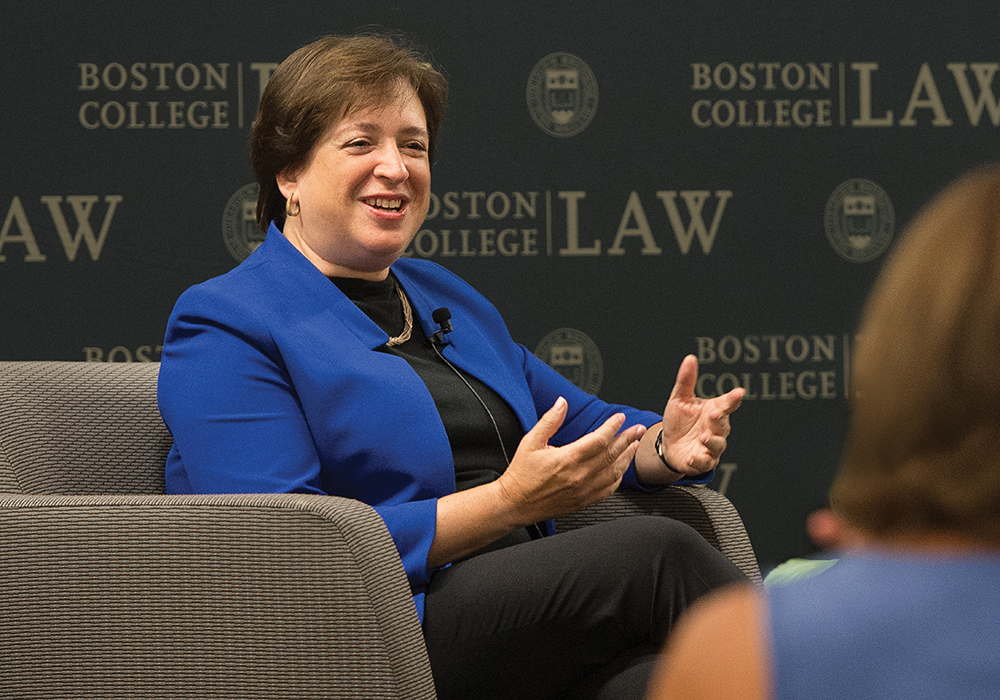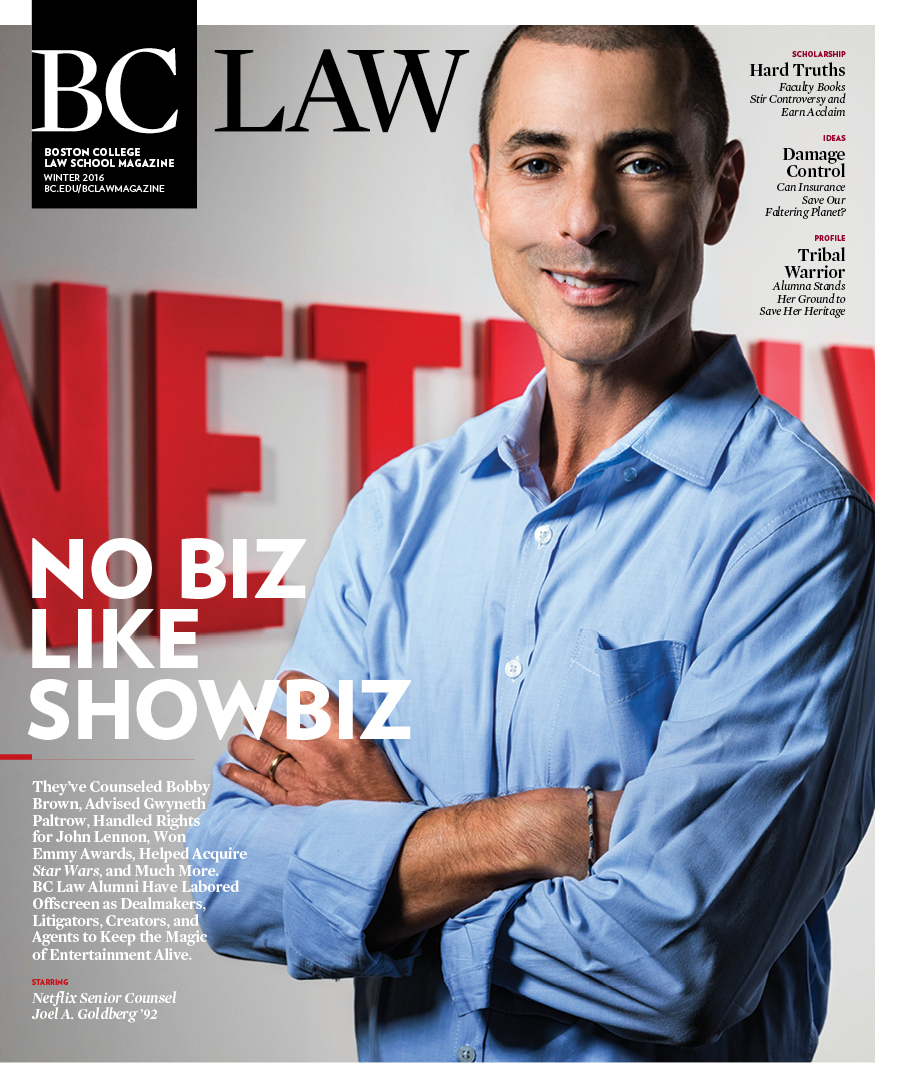This conversation began with a discussion between Dean Vincent Rougeau and Associate Justice Elena Kagan, then opened to questions from the audience gathered at BC Law. A graduate of Harvard Law School, Kagan clerked for Justice Thurgood Marshall, and served as dean of Harvard Law and as US Solicitor General. She famously sprinkles her rigorous, accessible opinions with Spiderman puns, Tommy Tutone lyrics, and Dr. Seuss rhymes. Justice Kagan came to BC Law at the invitation of Professor Sharon Beckman, who served as a law clerk to a previous justice of the Court, Hon. Sandra Day O’Connor.
VR: Two years ago, when Justice Sandra Day O’Connor spoke here, she recounted how difficult it was for her as a woman to find a job in a law firm in the 1950s. Can you compare her experience with your own early career experiences more than thirty years later?
EK: Night and day. By the time Justice Sotomayor and I came along, it was just incredibly different. Forty percent of my law school class was women. Law firms were very eager to have us; the same for judges and clerking opportunities. That doesn’t mean that the profession doesn’t have some structural challenges. But, honestly, talking with Justice O’Connor and Justice Ginsburg is always, for me, a reminder of how easy I had it and a reminder, for me, to be grateful.
“Diversity is important because of the picture that the Court presents to the world . A lot of school groups come to the Court and [they] see that there are three women on it and there is an African American and there is a Latina.” —Elena Kagan
VR: What are your thoughts about diversity on the Court—and not only diversity in the ways that we usually think about it?
EK: Diversity on the Court doesn’t much affect the decision-making we do. Every once in a while, there is a case where you can see it divides based on personal experience or background, but I have to say, it is really rare.
But I do think diversity is important because of the picture that the Court presents to the world. A lot of school groups come to the Court, and I think how great it is that all these kids see that there are three women on it and there is an African American and there is a Latina. Diversity gives people a sense that the Court, which is an important institution of our government, is connected to them in some way.
Geographically, we are an extremely coastal Court. And we come from two or three law schools. That’s sort of, in a way, ridiculous.
VR: What advice would you offer law students as they launch their careers?
EK: Using law school as an opportunity to find out what your real interests are, your real passions are, is an important thing and then going with them, notwithstanding that maybe they are different than other people’s.
I think the key to success is to work hard and treat people well, especially the people who are lower in these various hierarchies that we live in. People who treat people well—unexpected benefits come to them down the road.
Student: What is your goal when you write a dissent?
EK: There are dissents and there are dissents. There are dissents like: I disagree but such is life, and there are dissents like, I disagree. This is super important. I am going to continue to disagree. I am writing this so people out there—judges, citizens—know that this is going to be a continuing issue, and I’m hoping to convince them to be on my side of it.
VR: I’d like you to tell us about your duck hunting experience with Justice Scalia.
EK: [During] the confirmation process, I did courtesy visits with eighty-two senators. People wanted to know my views on gun issues. Nobody can just ask you things like that directly, so they find sort of proxy ways to figure it out. So, senators would ask me, ‘Have you ever hunted?’ And I would always say, ‘No.’ And they would say, ‘Does anybody in your family hunt?’ And I would say, ‘No.’ ‘Do any of your friends hunt?’ and I would say, ‘No.’ And, you know, ‘Have you ever touched a gun?’ And I would say, ‘No.’ And this was all going very poorly, really.
So, one day, one of the senators from Idaho starts down this road. And I said, ‘You know, Senator, you are exactly right that I did not have an opportunity to participate in these kinds of activities, but it is not like I am hostile to them. In fact, if you were to invite me hunting next week at your ranch, I would love to go.’ And this look of abject horror came across his face. And I thought, I probably went too far. So I said, ‘You know, Senator, I didn’t really mean to invite myself to your ranch, but I’ll make you a promise, that if I am lucky enough to be confirmed, I [will] ask Justice Scalia, whom I knew to be a quite avid hunter, to take me hunting.’ This was the only promise I made in eighty-two visits.
I was lucky enough to be confirmed and, that summer, I went to Justice Scalia and I told him this story and he thought it was uproarious. He said, ‘We’re on it! We’re doing it!’



